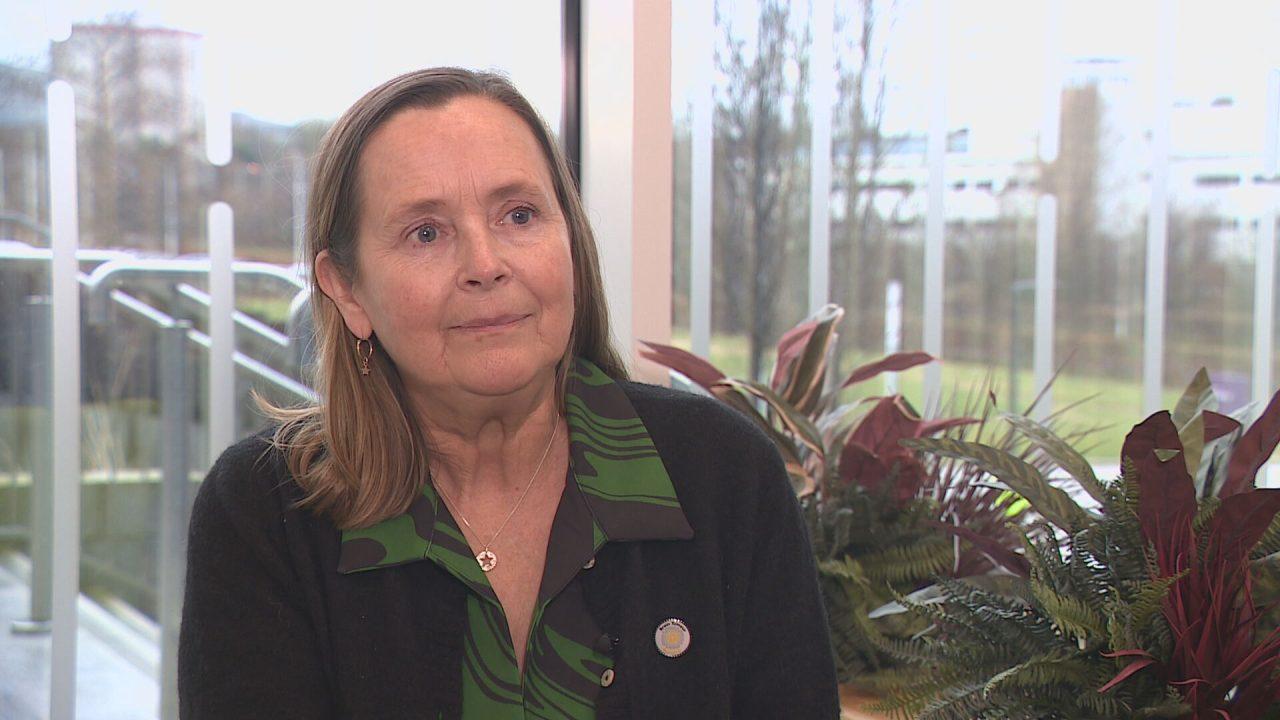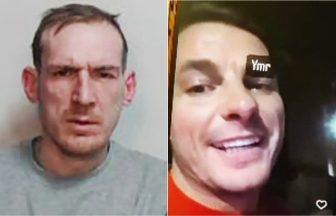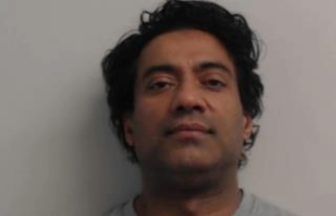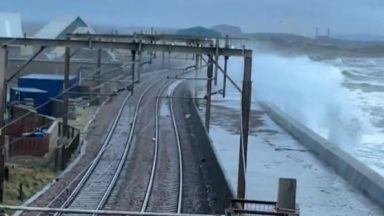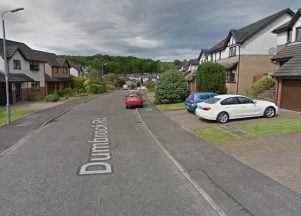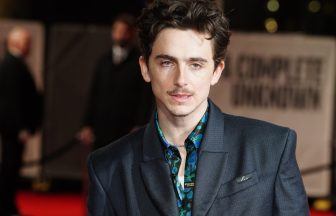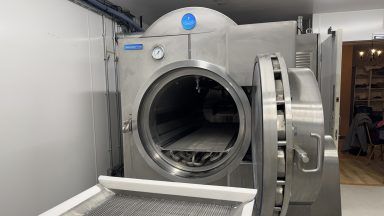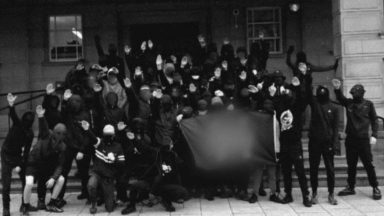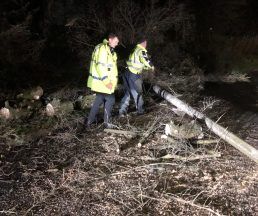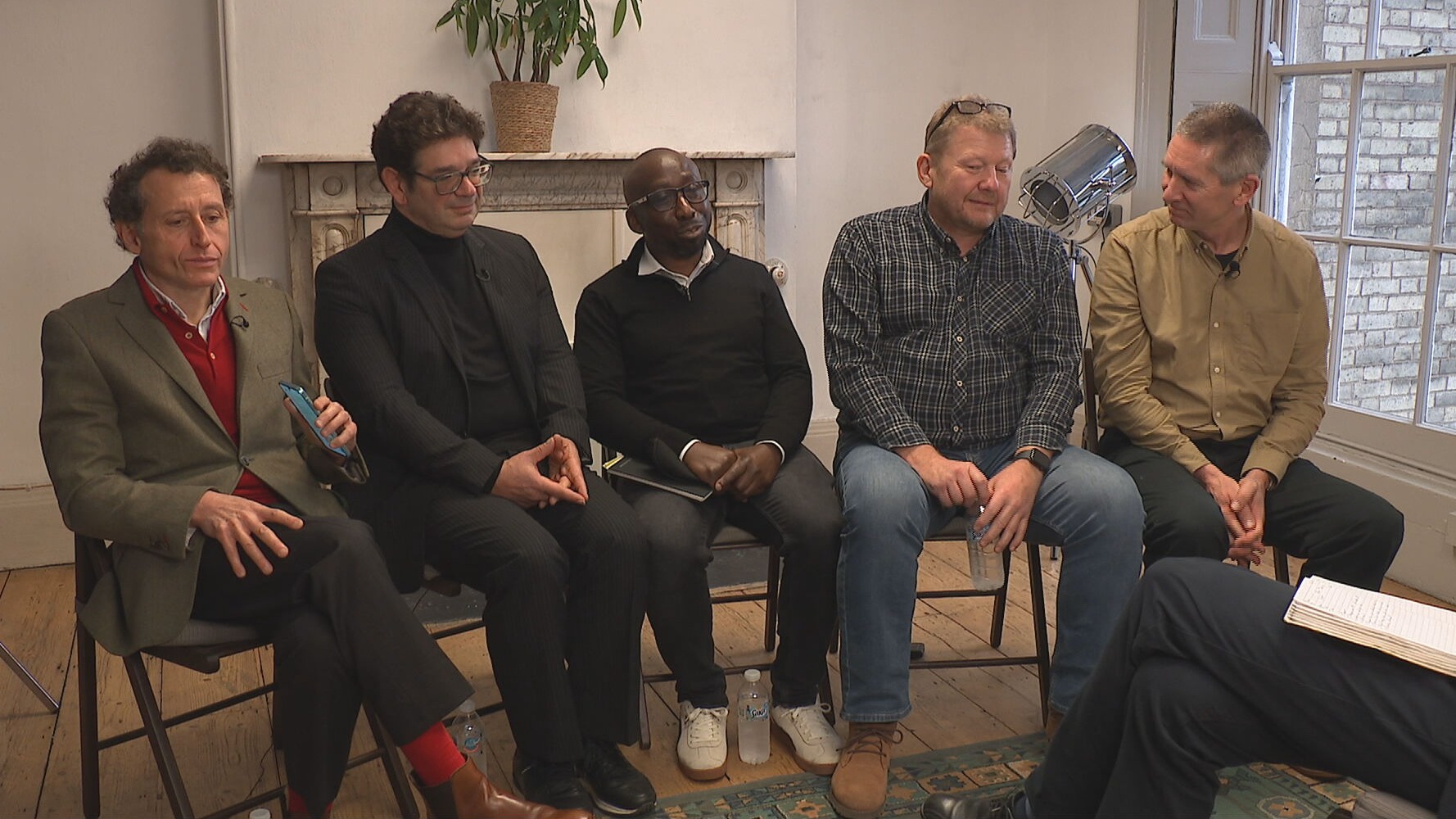A Scots family’s devastating journey through the loss of four loved ones to brain cancer has ignited a “vital” campaign for treatment and support.
Residential care officer Claire Cordiner has seen the disease take four of her loved ones over 16 years.
Her mum, Margaret O’Kane, died aged 67 in 2008 from a brain tumour.
This was followed by her sister Angie Jones, 36, in 2009; Angie’s son Max, 19, who died from a brain tumour in 2023; and her cousin David McCulloch, 56, who also died from the condition in 2024.
Claire says the tragic losses have prompted her fundraising work for research into the disease, which is the biggest cancer killer of people under 40 in the UK.
Brain cancer tragedy strikes family four times in 16 years
In 2007, her mum Margaret O’Kane was initially told she’d had a mini-stroke and that her symptoms were nothing to worry about – however, months later, she learned she had two tumours, both glioblastoma in her brain.
Margaret, who had 12 children, had a practical outlook on life, according to Claire.
“She was loving, caring, funny, but also strict when she needed to be, ” she said. “She always had her hands full.
“But her approach was simple: you’ve just got to deal with life, get up, and do it.
“She was very much like, ‘This is what you deal with.’
“Being brought up like that, we all learned to just deal with things. That’s how she raised us.”
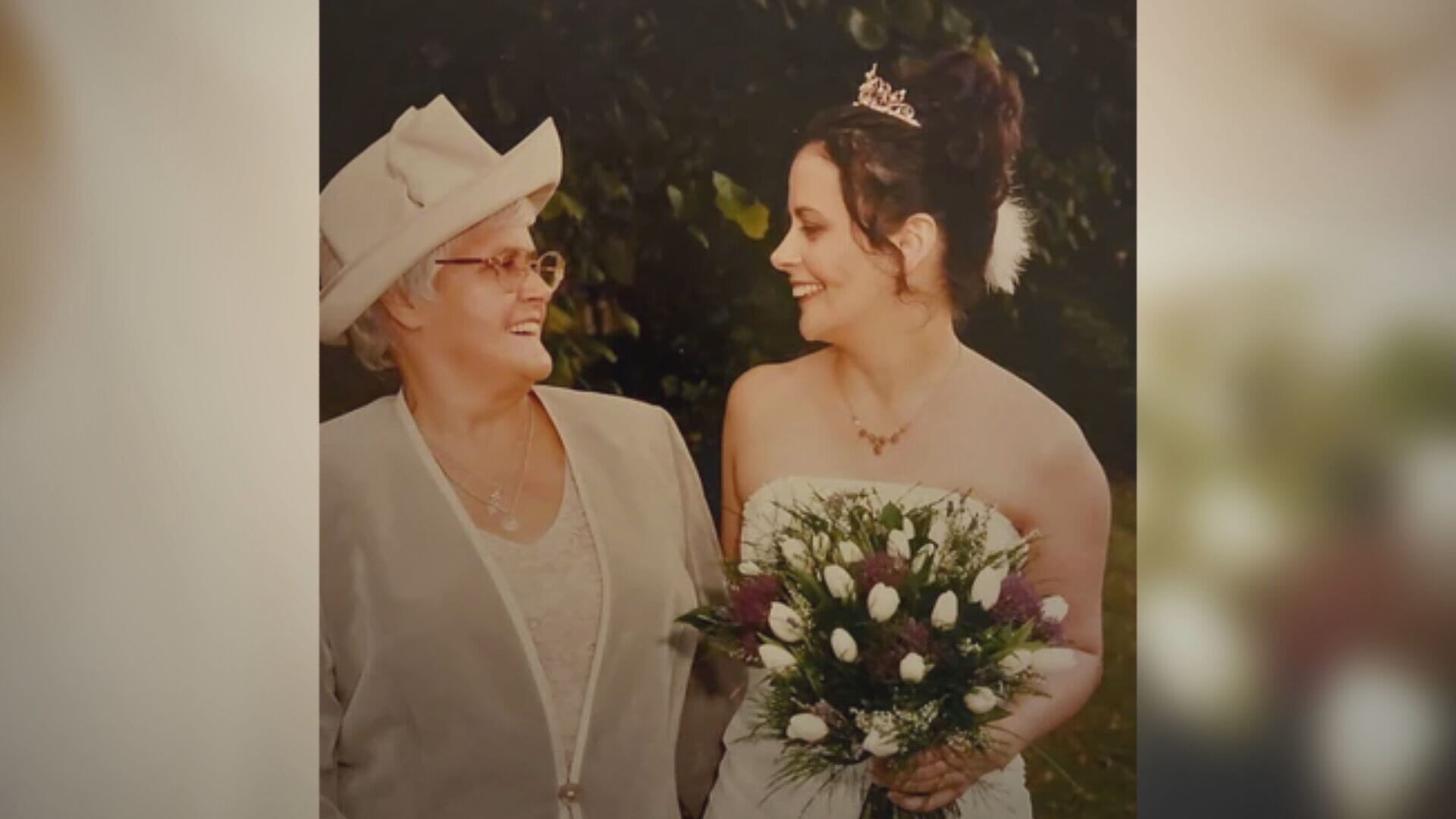 STV News
STV NewsMargaret died just a year later. Then, Claire’s youngest sister Angie, a mother of one, was diagnosed with brain cancer at the age of 31.
She was told she had between five and 15 years left to live, depending on how fast the tumour grew.
“At first, it wasn’t as difficult. It wasn’t an immediate impact, so she got on with life. Angie had a six-month-old to look after, and she doted on him.”
Due to her lowered immune system, Angie was in and out of hospital over the following four years.
She died aged 36 in 2009, leaving her then five-year-old son behind.
“Unfortunately, the tumour started to grow quickly. She couldn’t get proper treatment because she kept getting pneumonia.
“In the end, they said there was nothing else they could do.”
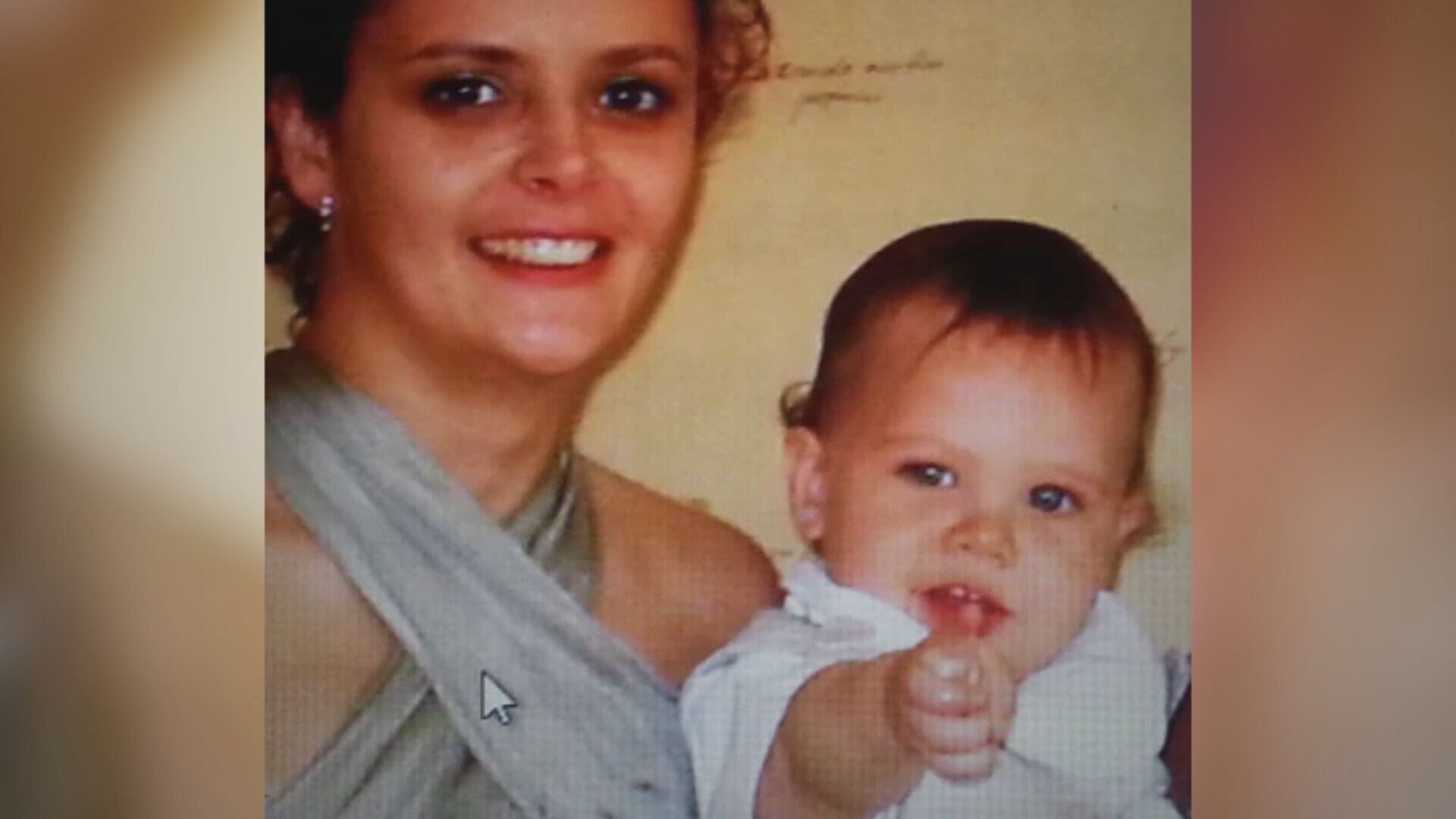 STV News
STV News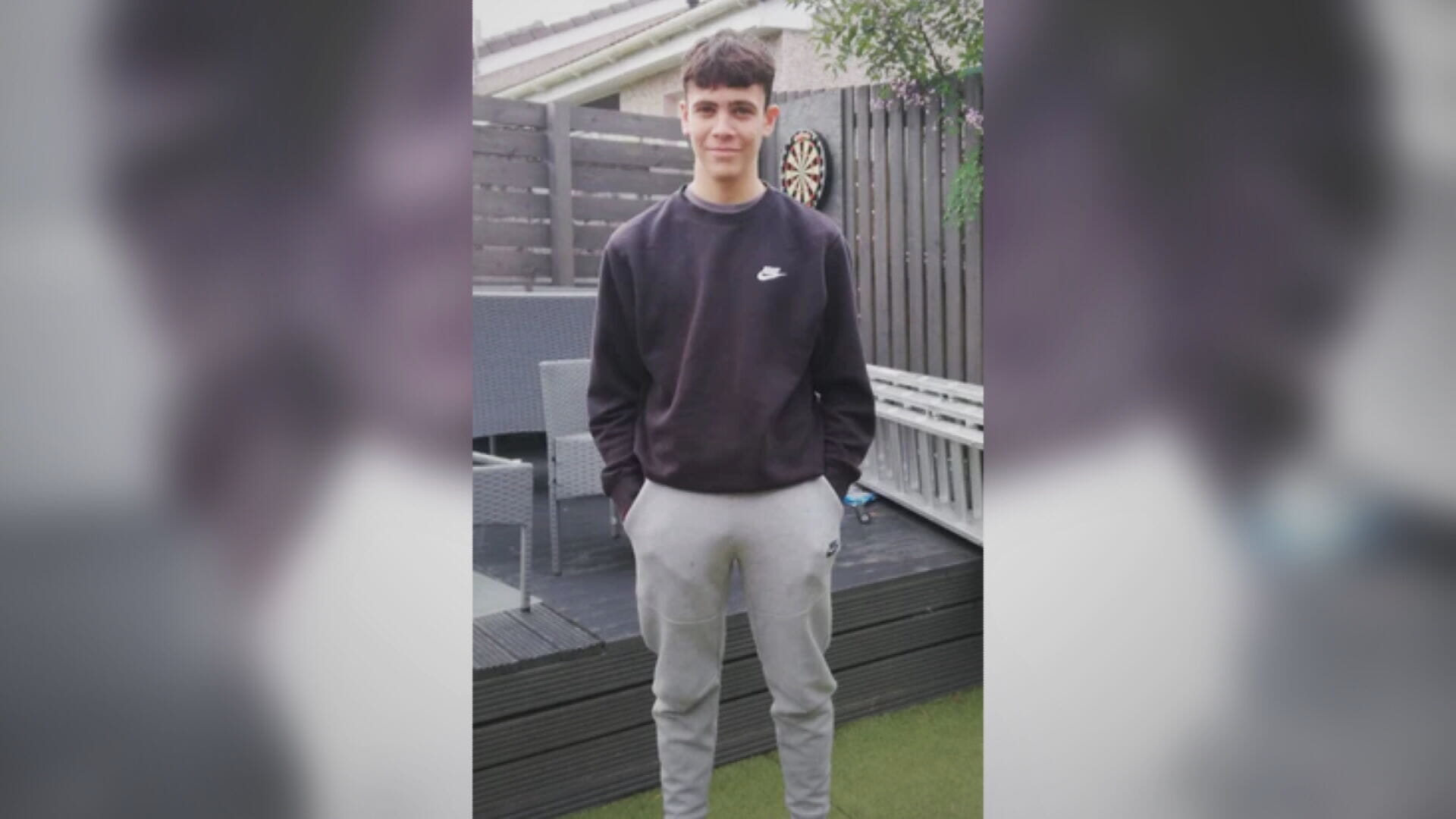 STV News
STV NewsTragedy struck the family again as Max began experiencing “excruciating” headaches and painful limbs. He was diagnosed with a brain tumour just before his 18th birthday.
He died a week after turning 19 in 2023.
“He had said to me in the hospice he knew before anybody else what was happening to him,” Claire said.
“That was absolutely devastating for the family.”
A fourth member of the family then fell ill – Claire’s cousin on her mum’s side, David, was told he had an astrocytoma. He died in 2024.
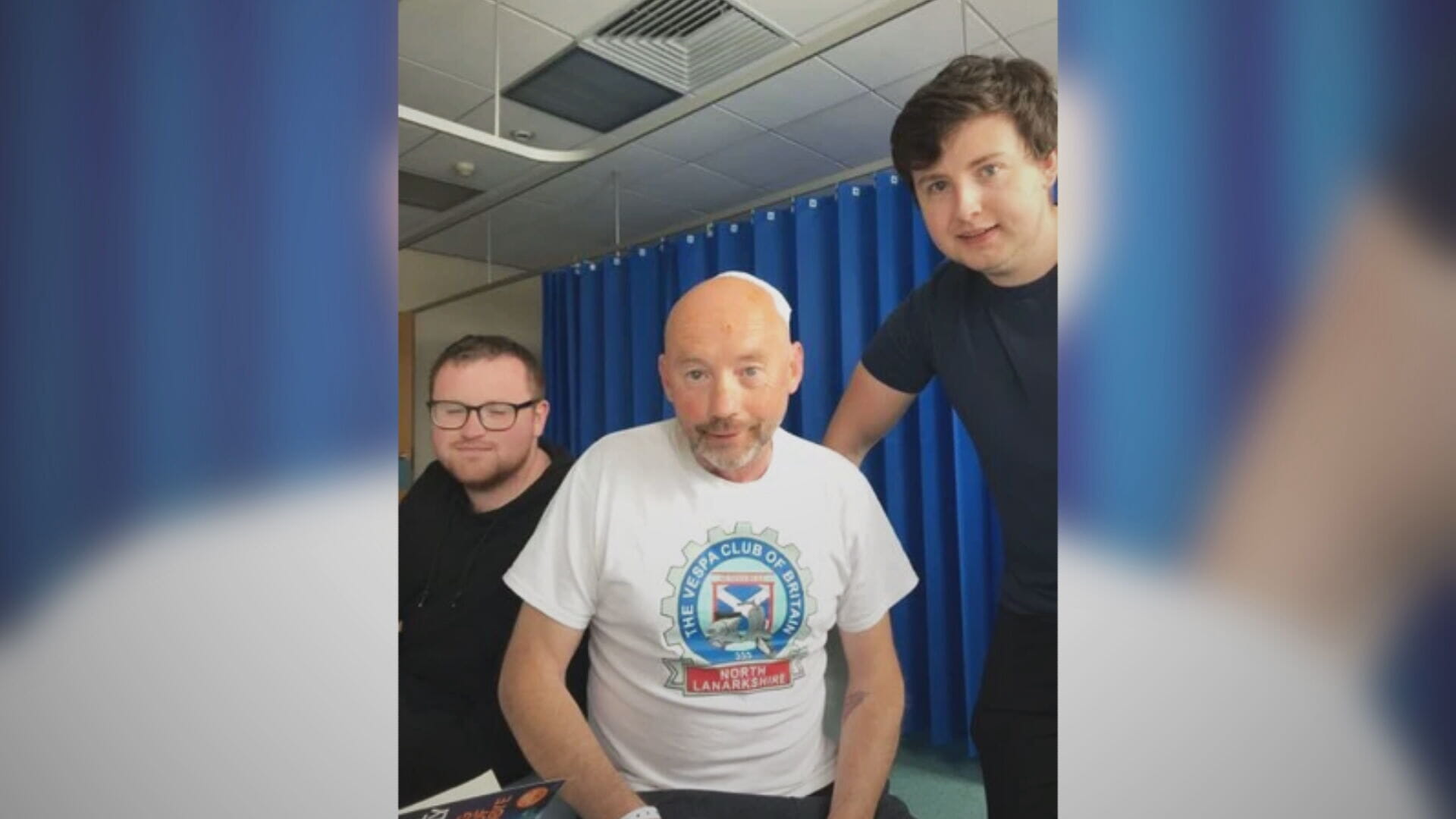 STV News
STV NewsClaire has channelled her grief into fundraising for Brain Tumour Research, a charity that aims to help develop new treatments and offer more support for patients.
She said: “There isn’t enough money being directed towards brain tumour research. For people like me and others affected by brain tumours, it’s up to us to raise our voices and make sure people know about it.
“We need more funding, better treatments, and ultimately, a cure.
“It’s important for people who are diagnosed to have lots of support. Not everyone has family around; some might be facing this on their own, which must be horrendous.
“At least we had each other. Emotional and practical support is absolutely vital.”
‘Our son was diagnosed with brain cancer – we just went numb’
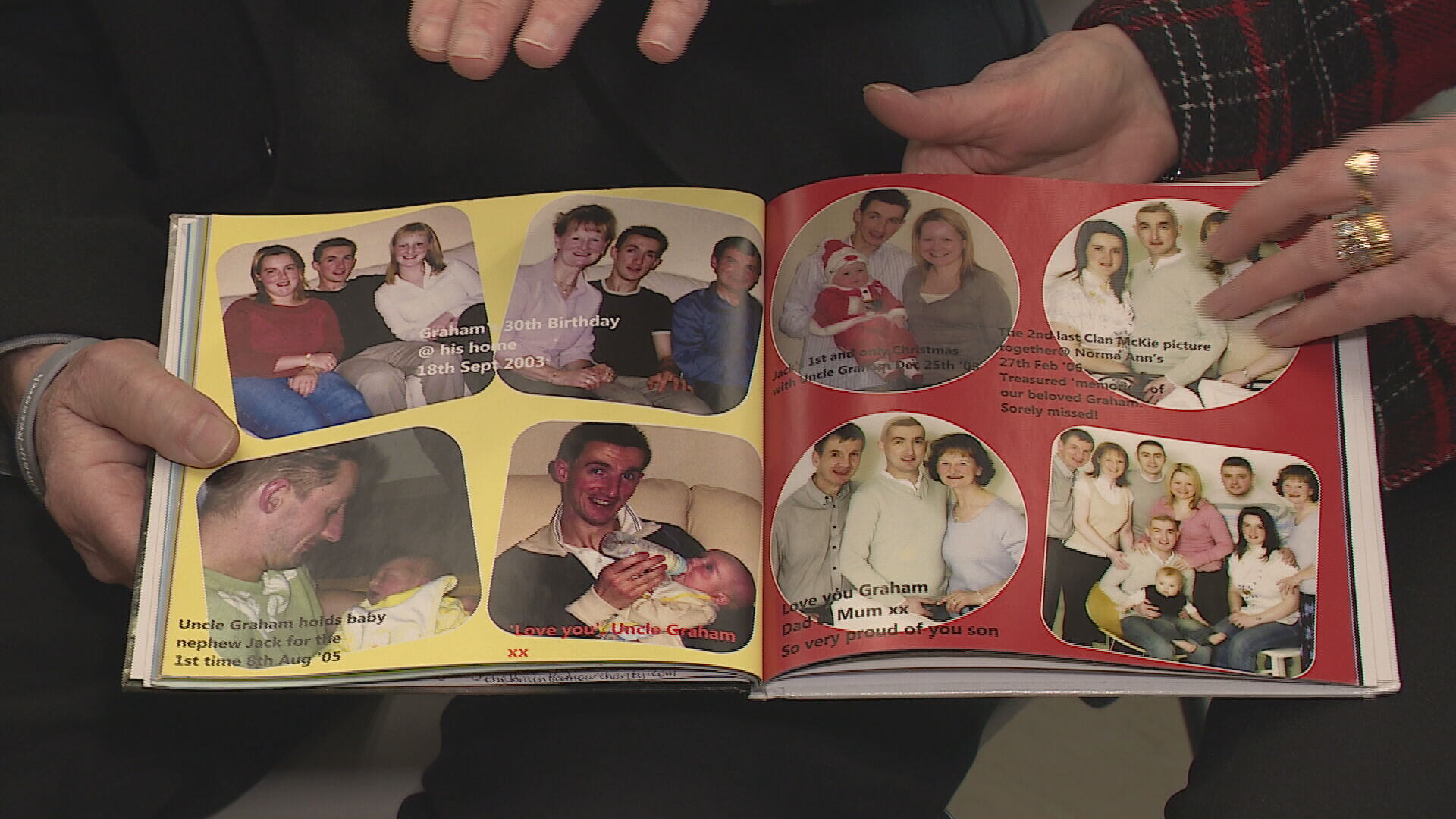 STV News
STV NewsGraham McKie was just 32 when he became unwell after a Boxing Day dinner in 2005.
In January 2006, he was diagnosed with a stage four glioblastoma, which was inoperable.
The news turned the family’s world upside-down.
Graham’s dad, Don, said: “We never heard of people having brain tumours before. For us to get that news was just devastating.
“We were just numb over it. It was very difficult to comprehend that this was Graham, my boy, having this disease.”
Mum Rachel added: “He was so fit, healthy and energetic – he played a lot of football.
“We’ll always remember his amazing smile.”
Graham, a trained motor mechanic, took the news of his condition “remarkably well,” despite that he would no longer be able to work or drive after his diagnosis.
“He was never angry. How he faced it kept us strong all the time,” Rachel said.
“He underwent chemotherapy and 30 rounds of radiotherapy. He came through them all, taking it one day at a time.”
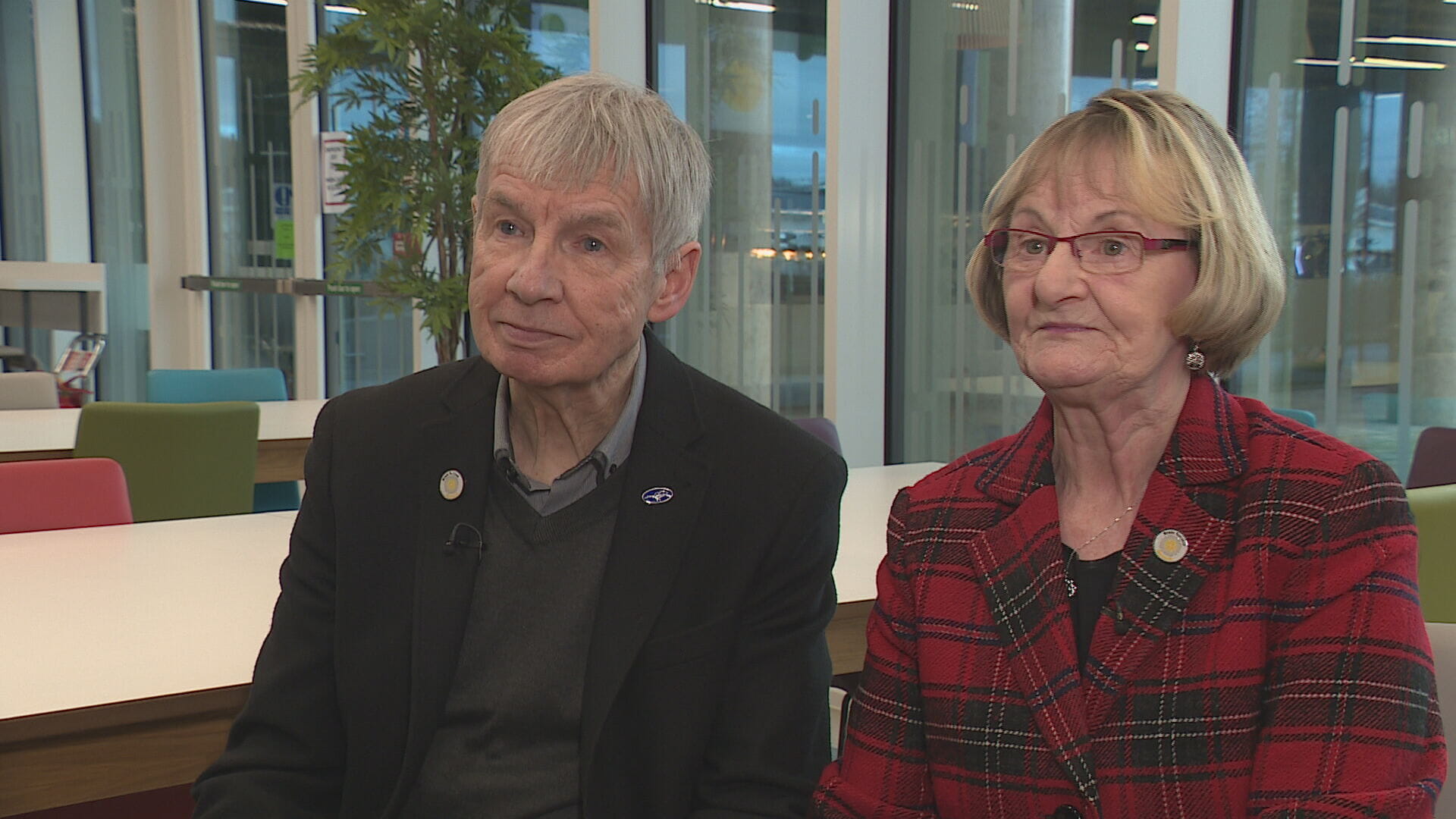 STV News
STV NewsA little over seven months later, Graham died from brain cancer.
In a show of strength, his family, led by his parents, Don and Rachel, began fundraising just months after their son’s passing.
They have since raised more than £50,000 for brain tumour research, and Don now volunteers with The Beatson.
“At the time, we thought we needed to do something. So, we threw ourselves into fundraising,” said Rachel.
“I think Graham would be very proud of us. Maybe in our grandchildren’s lifetime, people will be living longer.”
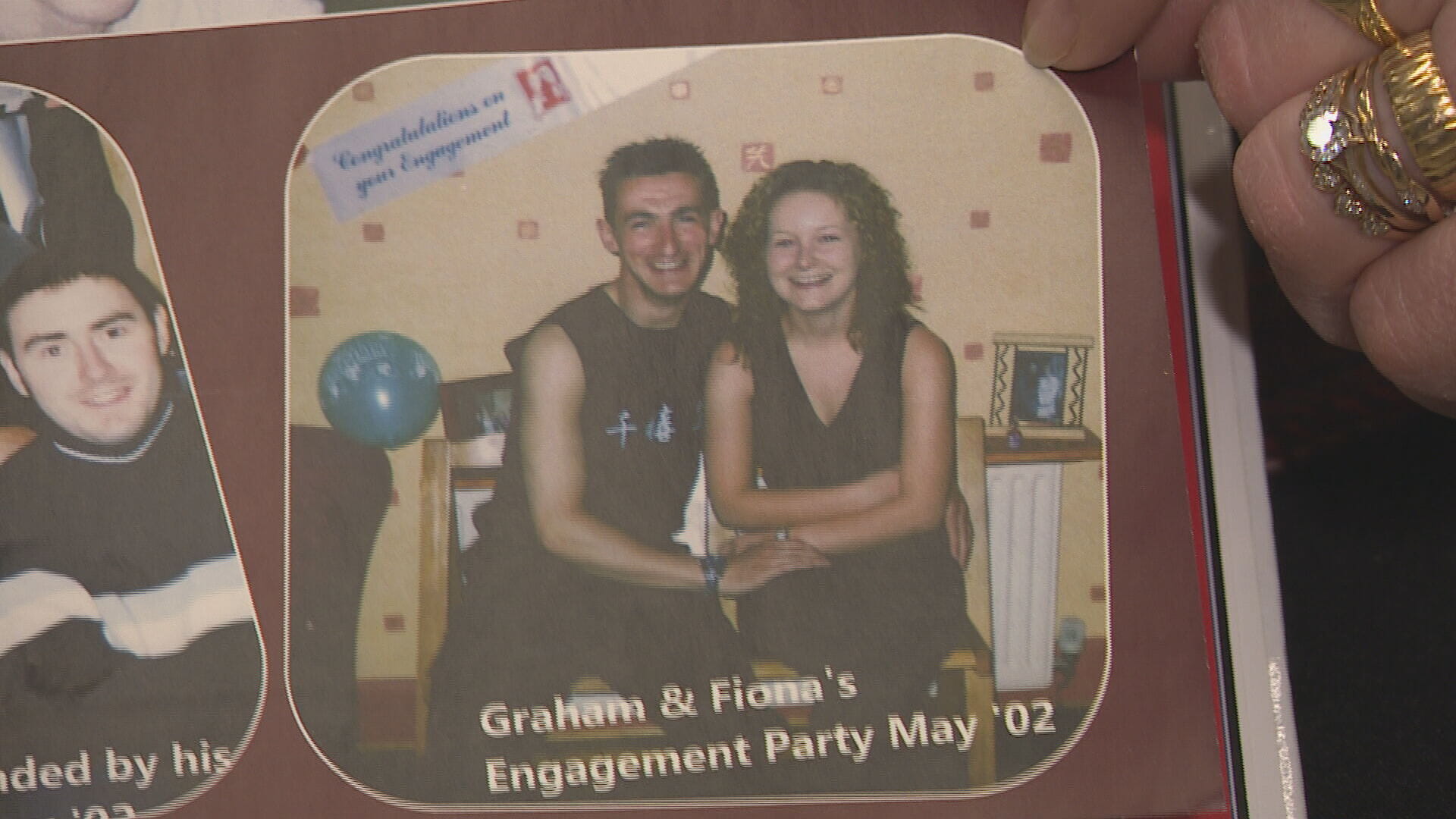 STV News
STV NewsSome of that funding has gone to support a new Scottish Brain Tumour Research Centre of Excellence, the result of a unique collaboration between two leading cancer charities.
The centre will see researchers based at the University of Edinburgh and the University of Glasgow working together with the aim of identifying the most promising new treatments and getting patients into clinical trials.
Don and Rachel have welcomed the initiative.
“We can see things are happening, and we’re privileged to be a part of it all,” Don said.
“At our age, we have asked, ‘Shall we keep going?’ But this venture is inspiring us even more – to do something better.”
Rachel added: “We will continue to raise as much as we can. It’s changing the story for Scotland.”
Brain Tumour Research and Beatson Cancer Charity are investing £2.4m in the Centre over the next five years.
More than half of that sum has been raised, and a public appeal is ongoing.
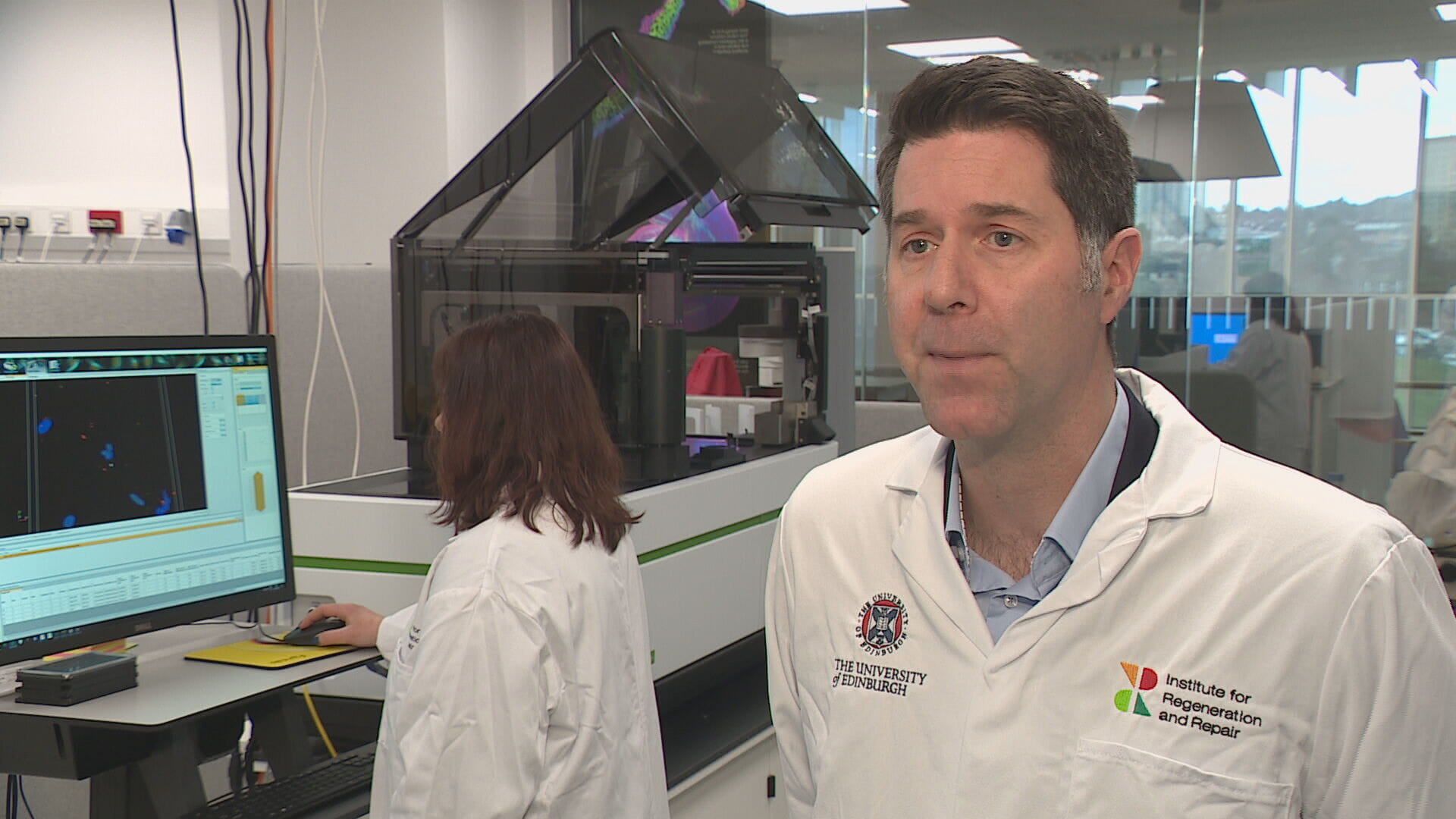 STV News
STV NewsSteven Pollard is a professor of stem cell and cancer biology at the University of Edinburgh and a senior Cancer Research fellow.
He said there has been “great progress” in understanding the disease made over the last decade – and it’s hoped more therapeutic treatments will be developed for brain cancer patients.
He said: “Over the last few years there has been a lot of excitement around harnessing the immune system to tackle the disease. That could be a direction to make a big impact.
“For too long, there has not been enough interest from the private sector from the pharmaceutical companies as this has been viewed as a cancer that is too difficult to tackle.
“The aim of the centre is to take some of the expertise that we have in the universities both Edinburgh and Glasgow and work together with colleagues in the NHS to try to find new targets and new drugs.”
“The centre helps bring the community together across Scotland. It’s about partnership – we really need that model to make any kind of progress with brain tumours.”
Follow STV News on WhatsApp
Scan the QR code on your mobile device for all the latest news from around the country


